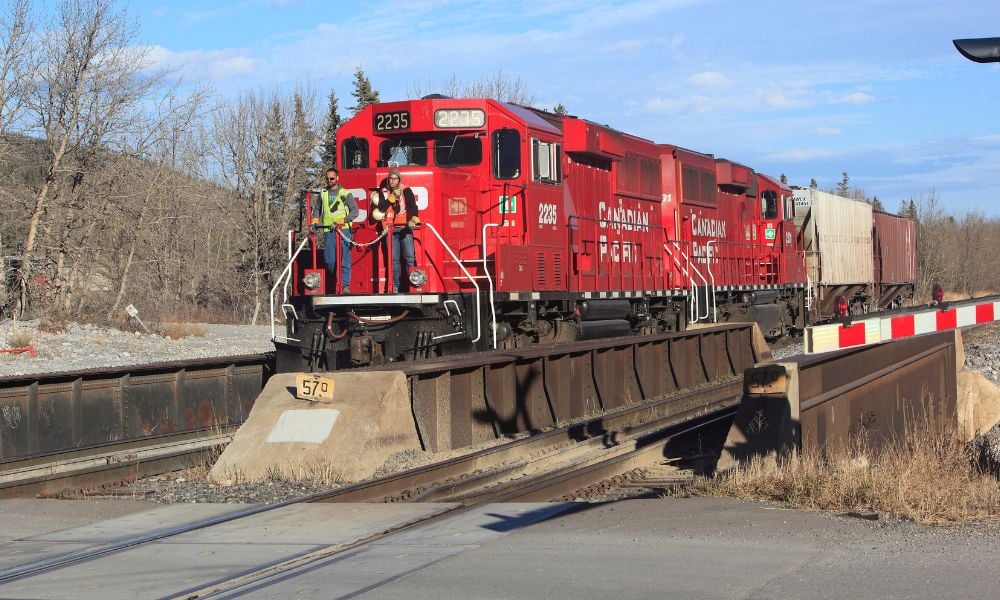
Teamsters union plans to appeal decision despite compliance

The Canada Industrial Relations Board (CIRB) ordered rail employees back to work, ending a dual work stoppage that brought freight trains to a standstill.
This decision was mandated after an impasse in contract negotiations between the Teamsters union and two of Canada’s largest railway companies, Canadian National Railway (CN) and Canadian Pacific Kansas City (CPKC).
On Thursday, Labour Minister Steve MacKinnon invoked Section 107 of the Canada Labour Code to impose binding arbitration on the dispute between CN, CPKC, and the Teamsters union, which represents engineers, conductors, and yard workers.
The latest decision, which came Saturday, enforces binding arbitration, marking a temporary end to the conflict.
Despite the return-to-work mandate, the effects on the supply chain are not expected to resolve immediately. Full recovery, according to both CN and CPKC, may take several weeks as operations gradually resume, reported CBC News.
CN is “disappointed” yet “satisfied” according to a news release the publicly-funded Crown corporation released Saturday.
“Over the last nine months, CN negotiated in good faith to reach a deal at the table. The Company consistently proposed offers with better pay, improved rest, more predictable schedules, and a voluntary mobile workforce,” the release stated.
“While CN is disappointed an agreement could not be reached at the bargaining table, the Company is satisfied that this order effectively ends the unpredictability that has been negatively impacting supply chains for months. CN remains focused on safely getting goods moving again, as efficiently as possible.”
The CIRB’s decision directly addresses concerns voiced by businesses across the country, which had been reeling from the halted freight services and potential supply chain disruptions which were described as disastrous by business groups.
The Teamsters union, which represents over 9,300 rail workers, has described the ruling as a “dangerous precedent” for Canadian labour relations.
“It signals to Corporate Canada that large companies need only stop their operations for a few hours, inflict short-term economic pain, and the federal government will step in to break a union. The rights of Canadian workers have been significantly diminished today,” Paul Boucher, President of the Teamsters Canada Rail Conference said in a press release.
“The Teamsters have fought to protect rail safety in Canada, improve working conditions, and prevent CN from forcing workers to relocate thousands of kilometres away from their families—and we will continue to do so,” added Boucher.
The arbitration process is set to begin on August 29, 2024, but the conflict is far from over as the union, which represents both CN and Canadian Pacific Kansas City (CPKC) employees plans to challenge the outcome.
Workers at both CN and CPKC had been engaged in labour actions over issues such as safety protocols, shift lengths, and scheduling concerns. The union has emphasized that employee safety is at risk, with CN’s proposal to transfer some workers to distant locations for months at a time as a particular point of contention.